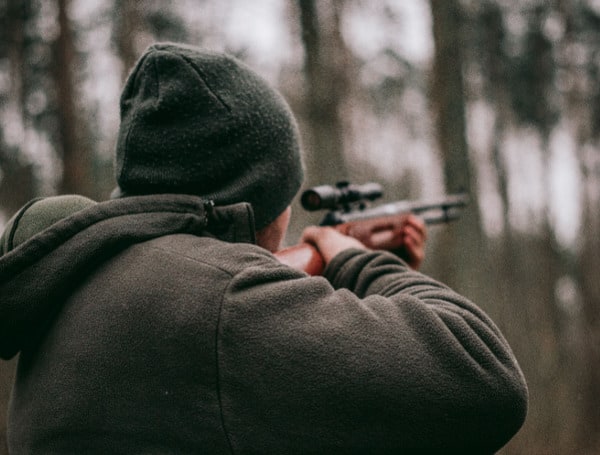Following confirmation of a single positive test sample for chronic wasting disease (CWD) in Holmes County in June 2023, the Florida Fish and Wildlife Conservation Commission (FWC) and Florida Department of Agriculture and Consumer Services (FDACS) have implemented management actions to protect against the possible spread of CWD.
On Sept. 8, the FWC issued a new executive order outlining regulations designed to increase sampling and slow the spread of CWD in Florida deer.
Existing regulations pertaining to the establishment of the zone, baiting and feeding restrictions, prohibition of rehabilitating or releasing injured or orphaned deer and export of high-risk parts remain in effect.
In the news: Slowing Deer Disease In Florida ‘Best That We Can Hope For’
New actions include:
- All deer harvested from Dec. 9-10, 2023 in Holmes, Jackson and Washington counties shall be checked at a staffed FWC check station prior to transporting the deer to the possessor’s domicile or a processor or taxidermist, except deer harvested on licensed game farms or hunting preserves.
- Take of antlerless deer shall be allowed throughout Deer Management Unit (DMU) D2 during the entirety of the open season for antlered deer established in Rule 68A-13.004, Florida Administrative Code, for DMU D2. Additionally, the take of antlerless deer shall be allowed from Dec. 9-10, 2023, in those portions of Holmes, Jackson and Washington counties located within DMU D1. These regulations shall not apply on commission-managed lands.
The purpose of these regulations is to help protect Florida’s white-tailed deer herd by reducing the potential spread of CWD within the CWD Management Zone and to other parts of the state.
The FWC and FDACS have scheduled two additional public meetings in Bonifay and Marianna to discuss the new rules and to hear feedback from the public.
The meetings will be streamed on The Florida Channel.
Controlling the spread of CWD is difficult once it becomes established in a natural population. Because prions shed by infected deer persist in the environment, the best chance for controlling CWD is acting quickly after it’s been detected to prevent more animals from becoming infected. CWD can be transmitted directly — from animal to animal — or indirectly from the environment. Multiple management strategies will be employed to control the spread of the disease.
The FWC is asking anyone who sees a sick, abnormally thin deer or finds a deer dead from unknown causes to call the CWD hotline, 866-CWD-WATCH (866-293-9282) and report the animal’s location.
Currently, there is no scientific evidence that CWD can be transmitted to humans or livestock under natural conditions. However, the Centers for Disease Control and Prevention do not recommend consuming meat from animals that test positive for CWD or from any sick animal.
The FWC provides information about precautions people should take when pursuing or handling deer that might have been exposed to CWD.
Android Users, Click To Download The Free Press App And Never Miss A Story. Follow Us On Facebook and Twitter. Signup for our free newsletter.
We can’t do this without your help; visit our GiveSendGo page and donate any dollar amount; every penny helps

